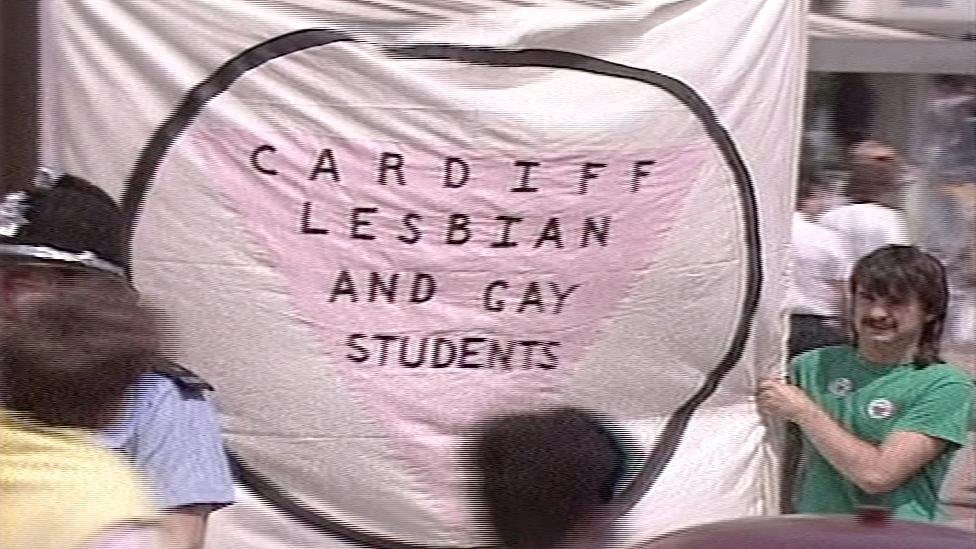LGBT: What do Wales' Pride events mean to you?
- Published
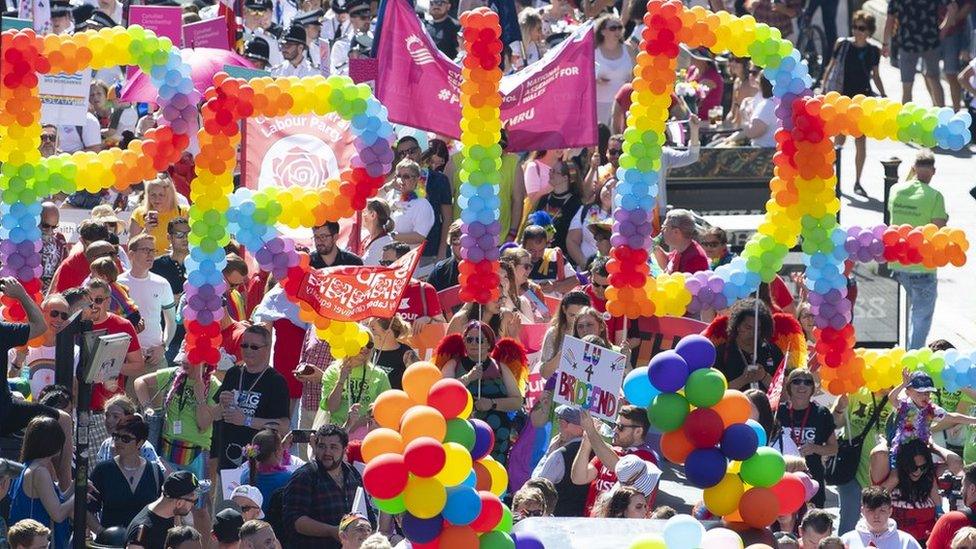
Cardiff's Pride Cymru returns in August after its biggest ever celebration in 2019
Pride events in Wales becoming more visible is a positive, but many challenges still need addressing, according to Stonewall Cymru.
Pride events are to be held in Newport and Powys for the first time, but there are calls for more black and ethnic minority representation.
BBC Wales has been hearing from people within the LGBT community to understand what Pride means to them.
Rania Vamvaka said it was about being "your authentic self".
Rania is co-chairwoman of Glitter Cymru, external, which was formed in 2016 to try to give a greater voice to people of colour within the LGBT community in Wales.
"Pride means history, Pride means that we honour the people who came before us in the LGBT movement and built the way for us," she said.
"We're fighting for trans rights, fighting for intersectionality within the community. In a way, Pride is about highlighting what work needs to be done still."
She said she thinks Pride events are opportunities to listen to younger people to find out how the movement should change and adapt over the next decade.
"All of this comes under the umbrella of Pride. Being yourself, being your authentic self and being able to feel pride in your sexuality and in your gender."
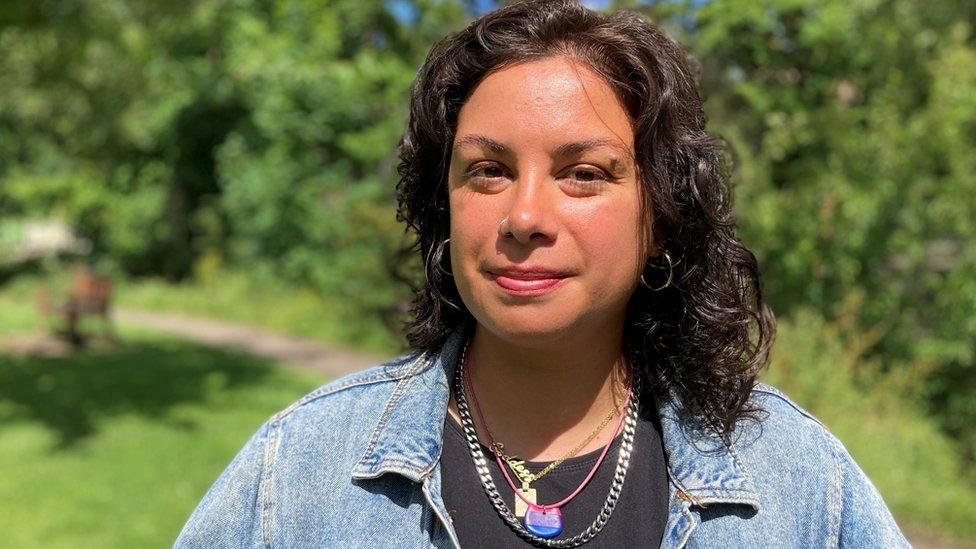
Rania Vamvaka said that queer people of colour find it difficult to find their voice
In 2019, Glitter Cymru held its first Pride event for people of colour in Wales. It moved online during the pandemic, which created more opportunity for more people across Wales who identified with Glitter Cymru to be heard.
Rania said for some refugees and asylum seekers living in Wales, it was the first time for them to come out in front of others.
"We have been expanding every year since, but the first pride for people of colour was just three years ago and I think this says it all," she said.
"We, queer people of colour, find it difficult to find our voice, our safe space within Pride because they are so white. We don't see where we can fit in.
"We have been forced to be in the margins and our voices are not heard by the mainstream Pride. We need to create our safe space, a space where we feel comfortable occupying."
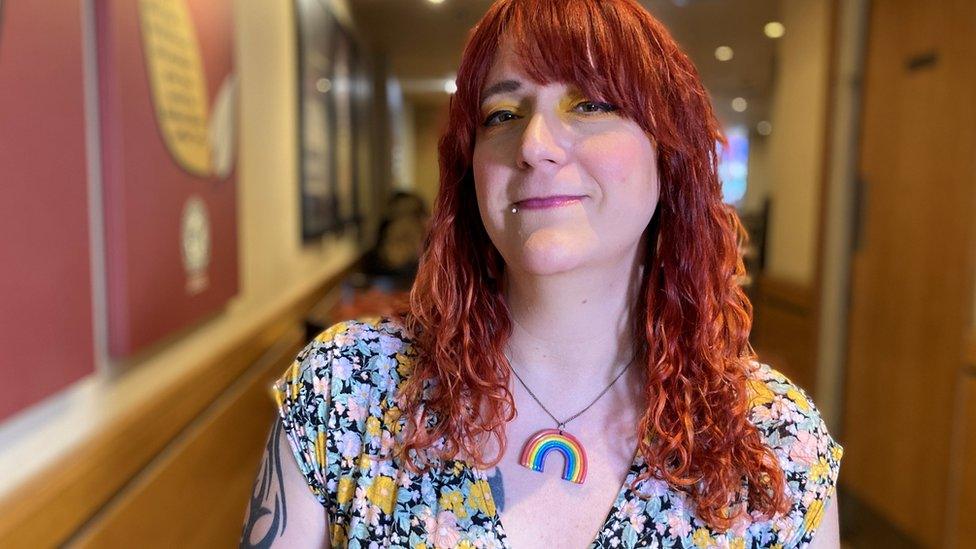
Zoey said she thinks Pride events should be held all year round
Zoey, a trans woman who lives in Cardiff, came out not long after attending her first Pride event in 2018.
"What Pride means to me is the ability to be unapologetically myself and not have to answer to everyone's expectations," she said.
She feels Pride is very important but still has a "long way to go" for many people.
"Pride needs to be celebrated and promoted throughout the whole year because queer people don't just face adversities during the summer months, they happen every single day of their lives.
"I feel that a lot of companies have over-commercialised the rainbow and like to cash in this time of year, rather than supporting queer people and queer rights throughout the whole entire year."
Pride as protest - not celebration
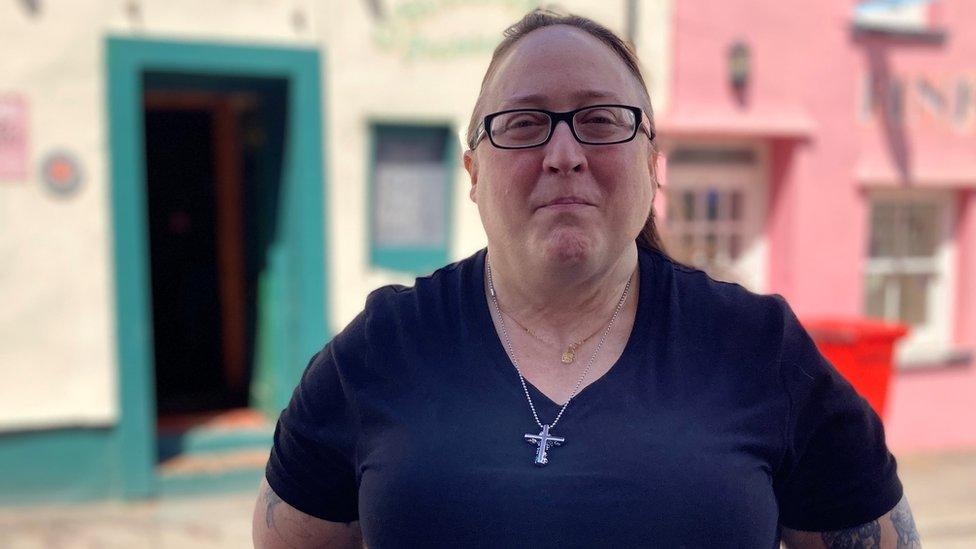
Natalie Bowen said the right to protest was essential due to "eradication of our basic rights"
Natalie Bowen is in the process of opening a restaurant with her wife in Llantrisant, which will be an LGBT-friendly business. She is also the vice-chairwoman of Pride Rhondda Cynon Taf.
"We have a long way to go in Rhondda Cynon Taf but we are here and we are strong and we want people to know that," she said.
"We have such a strong connection between the gay community and the mining communities of Rhondda Cynon Taf. We've all seen the film Pride and that connection."
Natalie said Pride was a "community protest" in her eyes, a way of making the community visible and getting their points across.
"Unfortunately, we're at a time when our protest is needed more than ever. From the eradication of our safe spaces through to the eradication of our basic rights, especially for the the trans and non-binary community.
"Right now, Pride as the right to protest is more important, in my opinion, as Pride as the right to celebrate."
"We have still have a long way to go with the UK Pride movement until we achieve full acceptance. I hope Pride remains activism-focused and community-focused and less commercially-focused."
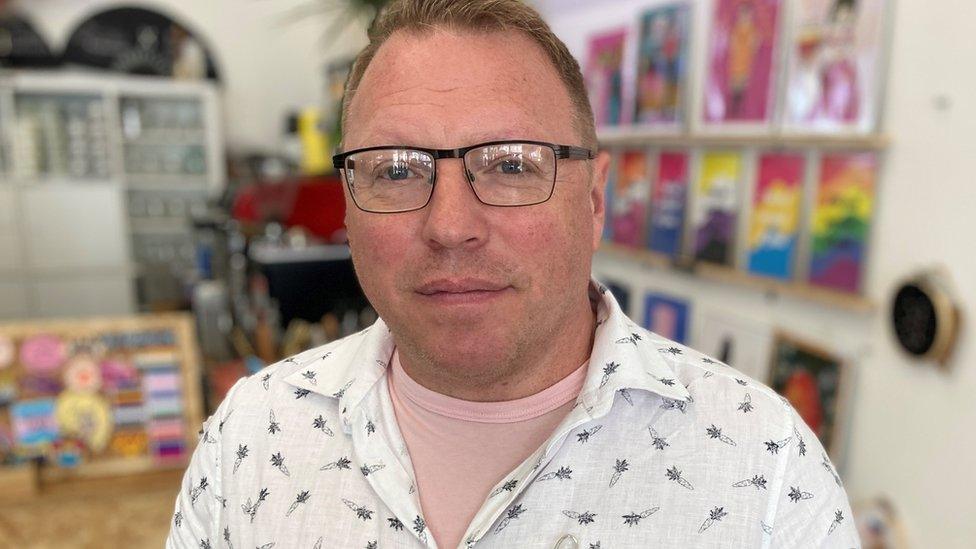
Rob Keetch said hopefully one day Pride events wont be necessary, but at the moment they "absolutely are"
Rob Keetch is a Pride Cymru ambassador, which is Wales' oldest Pride event and is held in Cardiff every year.
"Pride these days is both a celebration of the advancements we've made in the past 25 to 30 years. It's a reflection on where we were and a chance to focus on where we're going to be in the future," he said.
Rob said that some aspects of Pride that could be seen as over commercial actually helped fund important programmes, like coffee mornings for older members or quiet spaces for those with dementia.
"It also funds training so we can go into schools and into organisations to teach people LGBTQ rights, how they can best approach and support other members of their community," he added.
"Hopefully one day we won't need Pride anymore and we'll just have a Pride memorial day and we'll just go with the glitter and the flags for a day and say 'we used to do this in the past but we don't need it anymore'.
"Ideally, going forward I'd like to see a day when we don't need Pride, but at the moment, absolutely we do."

LGBT+ STORIES: Celebrating the LGBT+ community in Wales
HAYLEY PEARCE PODCAST : Tackling the issues that make the group chats go off

- Published19 June 2022
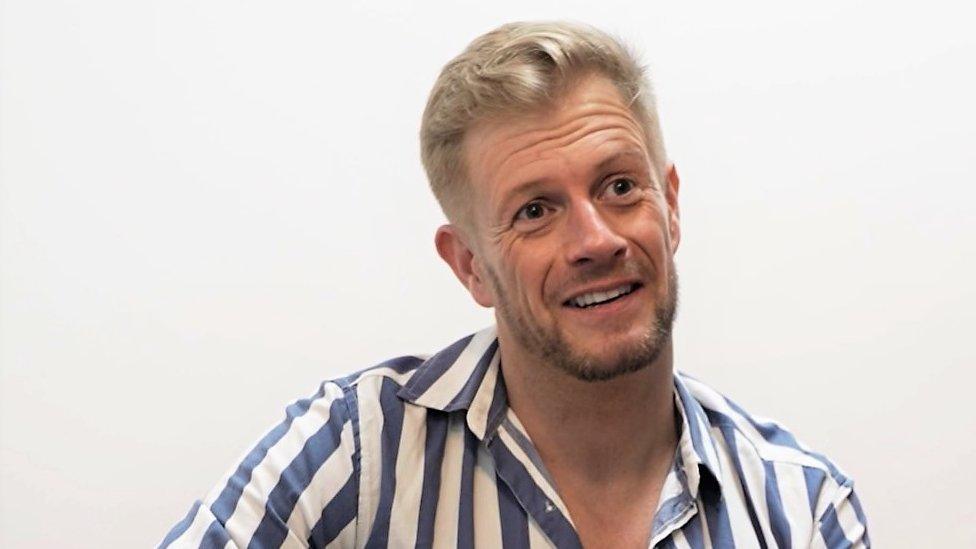
- Published29 July 2021
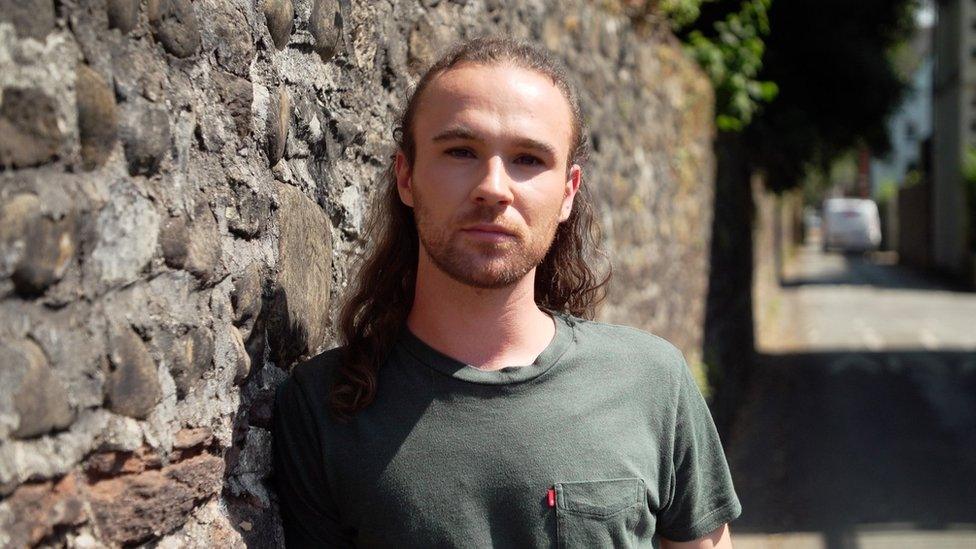
- Published18 June 2022
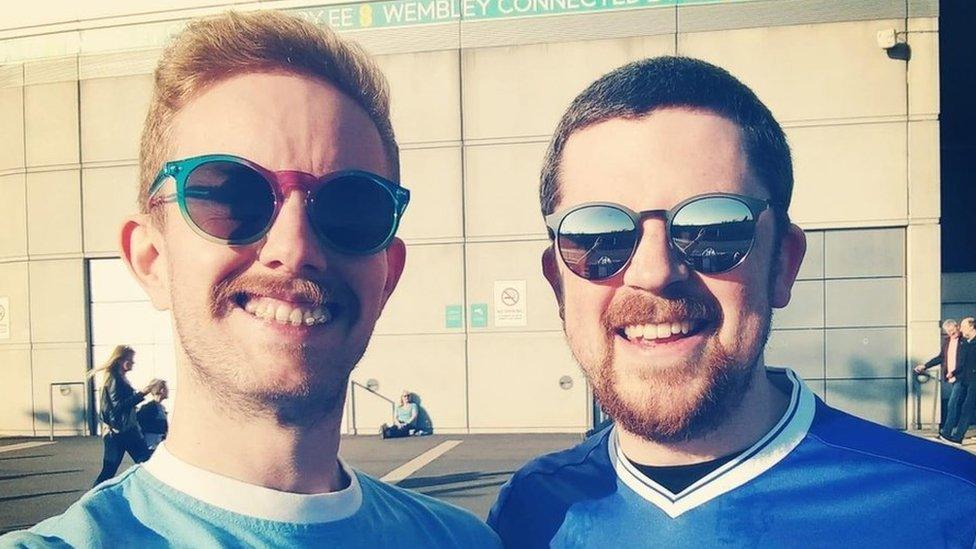
- Published20 June 2020
